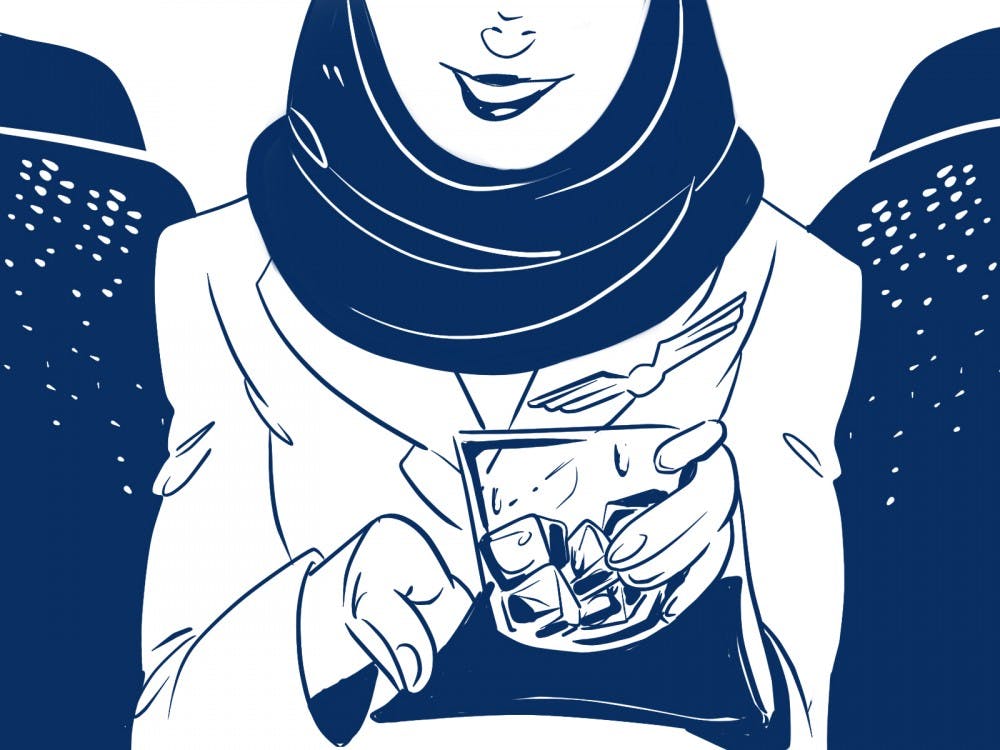By now, everyone has heard of Kim Davis and her refusal to do her job as a Kentucky clerk, citing her religious beliefs as irreconcilable with issuing marriage licenses to same-sex couples.
But, where should we draw the line between religious freedom and the performance of work duties?
Recently, Charee Stanley, a Muslim flight attendant employed by ExpressJet Airlines, was suspended from her job in a case that a CBS News headline suggested was due to her refusal to serve alcohol on flights.
An attorney for the Council on American-Islamic Relations Michigan, however, said an “Islamophobic complaint” from a coworker was the real reason for Stanley’s 12-month suspension from her job.
The Editorial Board believes Stanley’s suspension is entirely different from the Davis case, even if refusing to serve alcohol was the primary reason for ExpressJet putting Stanley on administrative leave.
Davis came under fire and was ultimately jailed because she not only refused to carry out one of her primary job responsibilities, but she also allegedly prevented those working under her from doing so, even if same-sex marriage was not against their religious views.
Stanley, by contrast, did not attempt to force her own views onto her coworkers. In fact, she allegedly worked out an arrangement with them to ensure customers were still served alcohol if they desired it.
We think there are important fundamental differences between Davis’ case and Stanley’s.
Both situations are being portrayed in the media as essentially about religious freedom.
Stanley said, “I don’t think that I should have to choose between practicing my religion properly or earning a living.”
Unlike Davis, however, Stanley did not try to impose her religious beliefs on her coworkers and customers.
Her reluctance to serve alcohol also did not prevent her from accomplishing her primary job duties, unlike in the Davis case.
A flight attendant’s main purpose is to keep passengers safe, not to supply them with alcohol.
Even if other flight attendants also refused to serve alcohol, surely passengers can make it a few hours on an airplane without a drink.
Marriage licenses, on the other hand, affect the lives of those who seek to acquire them in major ways.
Unlike Davis, Stanley did not seek to discriminate against an entire group of people by refusing to serve passengers alcohol. She simply sought to modify her duties, not completely disregard them as Davis did.
We should also keep in mind that Davis is a government employee and required by law to perform certain duties. Stanley and other flight attendants work for private companies.
Stanley probably has good grounds for a lawsuit in this case.
The Editorial Board believes the Stanley case reeks of Islamophobia and discrimination rather than a deliberate shirking of essential job functions.
Stanley genuinely appears to want to do her job, just with minor modifications to accommodate her religion.
Davis, on the other hand, appears to want to force the entire world to conform to her religious views to the point of not allowing others to do their jobs.
Let’s be clear: these cases are not the same.
Religious freedom and freedom from discrimination are fundamental rights that should be accessible to everyone, but that freedom ends where other people’s rights begin.




